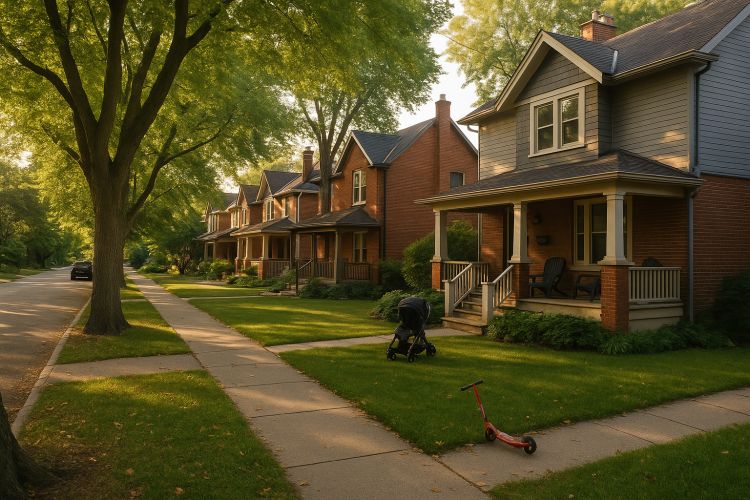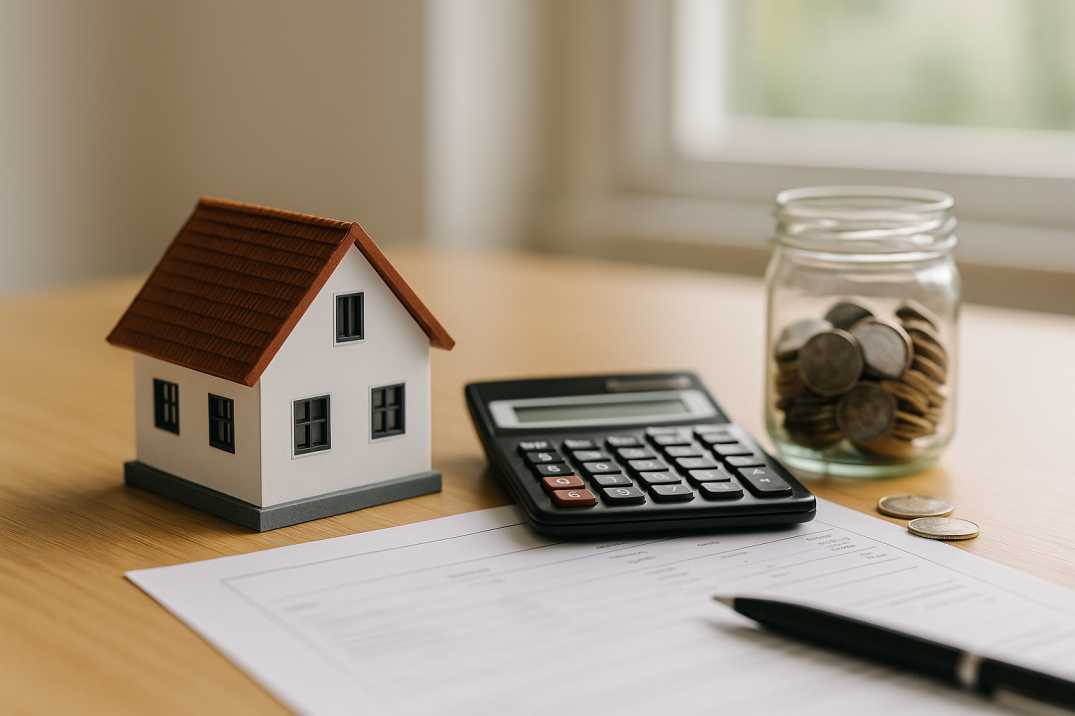If you’re asking, “How much can I sell my house for in Toronto?” you’re not alone. Most homeowners start with online calculators, then get a professional opinion. Smart approach. The difference between these methods can mean tens of thousands of dollars in your pocket or months sitting on the market. Whether you’re testing the waters or ready to list, understanding how to value your home correctly matters.
At Nave Real Estate, we’ve helped countless GTA homeowners navigate this exact question. Here’s how to get your answer today.
TL;DR
- Your home’s value equals what buyers will pay in current market conditions
- Three methods: Professional CMA (most accurate), online calculator (quick ballpark), appraisal (required for financing)
- Combine multiple methods for the most reliable price range
- Toronto’s current buyer’s market means realistic pricing matters more than ever
- Start with a free CMA from a local agent for serious selling decisions
Why Market Timing Affects How Much You Can Sell Your House For Right Now
Toronto’s housing market in late 2025 heavily favours buyers. [1] More homes are available, properties sit longer, and sellers face tougher negotiations than a few years ago.
This reality directly impacts your home’s value. What your neighbour sold for last year might not reflect today’s number. The same house can be worth different amounts depending on inventory levels, buyer demand, and interest rates at the time you list.
Getting an accurate valuation right now means understanding these current conditions. Overpricing by even 5% can cost you months on the market and eventual price reductions. [2] Underpricing leaves money on the table. The key is using methods that account for today’s market, not yesterday’s.
Accurate pricing gets you sold faster with less stress. That’s why choosing the right valuation method matters.

Three Ways to Calculate How Much You Can Sell Your House For
Getting an accurate picture means using proven valuation methods. Here’s how each one works and when to use it. Each method serves a different purpose and offers varying levels of accuracy.
Professional assessments give you market-ready pricing, while online tools provide quick ballpark figures. Understanding the strengths and limitations of each approach helps you choose the right one for your situation.
Professional Comparative Market Analysis (Your Most Accurate Answer)
A comparative market analysis from a real estate agent gives you the most reliable estimate for selling purposes. The agent examines recently sold homes similar to yours in location, size, condition, and features. They adjust for differences like upgrades, lot size, or layout.
This method works because it combines hard data with local market expertise. Your agent knows which renovations buyers value, how quickly homes are selling, and what price points attract offers. They visit your property to assess the condition and appeal that online tools miss.
The CMA typically provides a price range rather than a single number. This range reflects realistic expectations based on comparable properties that actually sold, not just listed. Most agents offer this service free when you’re considering selling.
Best for serious sellers who want accuracy before making decisions.
Online Home Value Estimator and Calculator Tools
Googling “how much can I sell my house for calculator” online brings up dozens of instant estimator tools. These calculators use algorithms and public data to estimate your home’s value in seconds. The automated tools analyze recent sales, tax assessments, property characteristics, and market trends to generate a number.
The convenience comes with limitations. Most estimators carry error rates between 2% and 7%, meaning they can be off by tens of thousands of dollars. They miss recent renovations, unique features, condition issues, and neighbourhood nuances that affect value. An updated kitchen or finished basement often goes unaccounted for in the algorithm.
These tools work best as a starting point, not a final answer. Use them to get a general sense of your home’s range before diving deeper. Many homeowners also reference mortgage calculator tools when planning their next move, though these serve different purposes.
Best for quick ballpark estimates when you’re months away from selling or just curious.

Professional Home Appraisal
A licensed appraiser conducts an in-person inspection and prepares a detailed report for lending purposes. They measure your home, photograph it, assess its condition, and compare it to recent sales using standardized methods.
Appraisals differ from CMAs in their formality and purpose. Banks require appraisals to confirm your home’s value matches the loan amount. The appraiser has no stake in the sale price, making it an objective third-party assessment.
This method typically costs between $300 and $500, though prices vary. The process takes one to two weeks from inspection to report. Most sellers only get appraisals when buyers need financing, not before listing.
Best for meeting mortgage requirements rather than setting your list price.
Quick Comparison: Which Method Should You Use?
| Method | Accuracy | Cost | Best For | Timeline |
| Agent CMA | Highest for selling | Free | Pricing decisions | 2-3 days |
| Online Calculator | Moderate (±2-7%) | Free | Quick estimate | Instant |
| Appraisal | Very high | $300-500 | Financing | 1-2 weeks |
Key Factors That Determine Your Home’s Value
Beyond the valuation method you choose, certain factors consistently influence what buyers will pay for your property.
Location drives everything. Neighbourhood desirability, school districts, transit access, and proximity to amenities all impact value. Two identical houses on different streets can have notably different prices.
Property characteristics matter significantly. Square footage, lot size, number of bedrooms and bathrooms, layout functionality, and overall condition all factor into your home’s appeal and worth.
Recent upgrades and renovations add value when done right. Updated kitchens, renovated bathrooms, finished basements, and new flooring typically increase what buyers will pay. Deferred maintenance decreases it.
Comparable sales set the baseline. What similar homes actually sold for recently in your area establishes the realistic price range for yours.
Current market conditions create the final context. Inventory levels, buyer demand, interest rates, and seasonal timing all influence the final number your home commands.
Understanding these factors helps you interpret the valuations you receive and make strategic decisions about pricing.

Getting Your Accurate Answer
The smartest approach combines methods. Start with online calculators for a rough idea, then get a professional CMA from a local agent who knows your neighbourhood. This gives you both quick information and accurate, market-informed guidance.
Your home’s value isn’t theoretical. It’s what a ready, willing, and able buyer will actually pay in today’s conditions. The right valuation method puts that number in clear focus so you can make confident decisions.
Ready to find out what your home is really worth? Connect with experienced professionals who can provide a detailed market analysis specific to your property. Sell your house with confidence by starting with accurate information.
FAQ
How accurate are online home value calculators?
What’s the best way to estimate how much I can sell my house for?
How much does a home appraisal cost in Toronto?
Can I find out my home’s value right now for free?
References:
[1] Toronto Regional Real Estate Board. (2025). Market Data and Housing Statistics. https://trreb.ca/market-data/
[2] Canada Mortgage and Housing Corporation. (2025). Housing Market Outlook. https://www.cmhc-schl.gc.ca/professionals/housing-markets-data-and-research/market-reports






